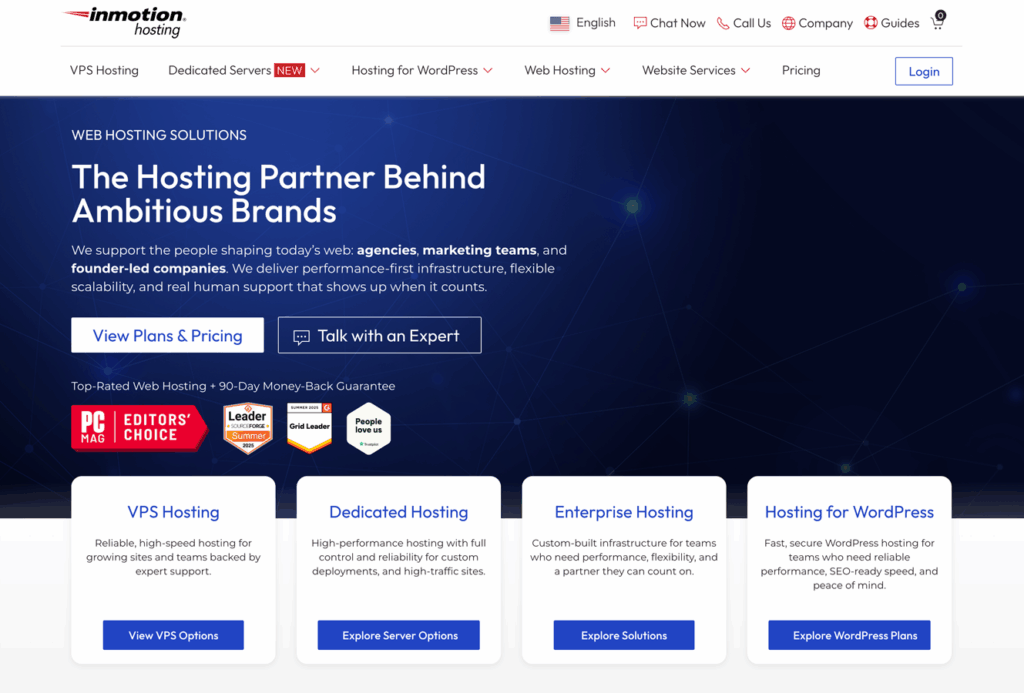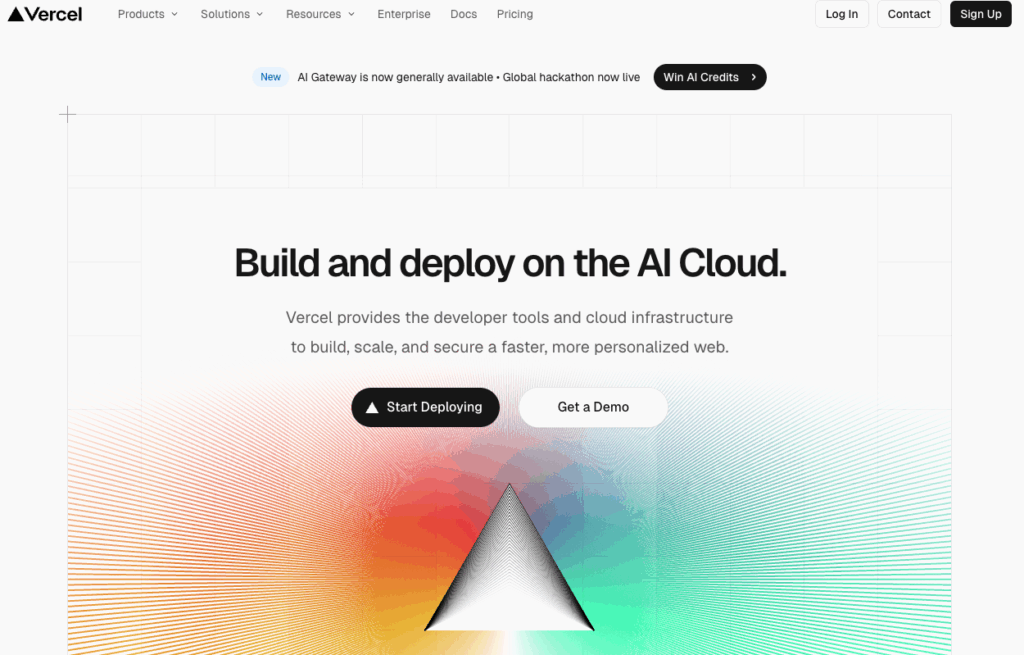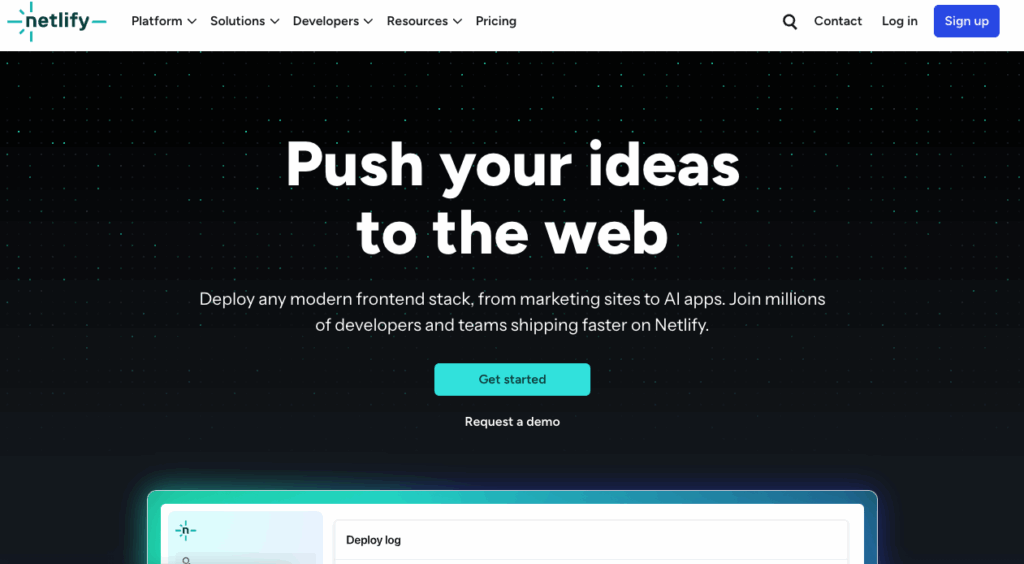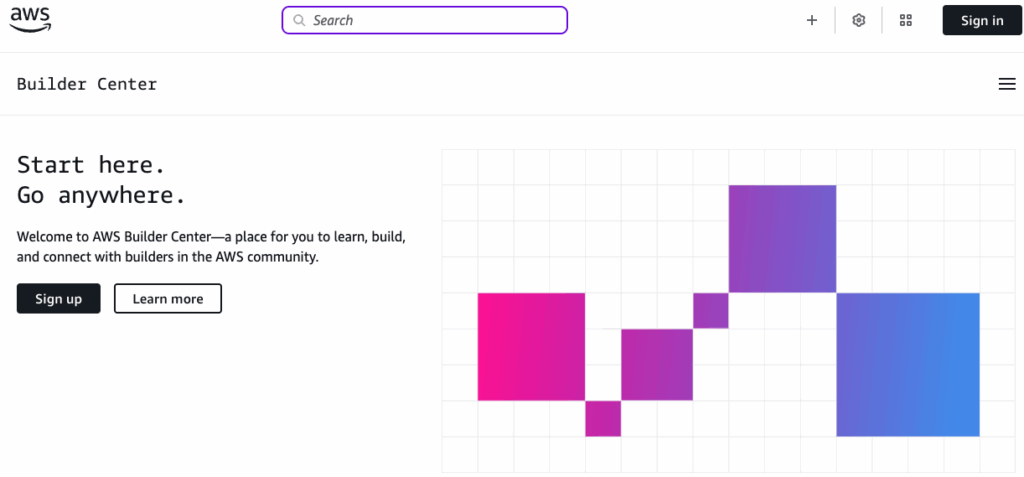Choosing the best developer hosting is more than a technical decision; it’s a strategy for growth. This guide explores what sets developer-friendly hosting apart, the features professionals expect, and how leading providers compare. From startups to enterprises, the right host ensures speed, scalability, and reliable human support. We evaluate the top options, from budget VPS to global cloud platforms.
When you’re a developer, your hosting environment is more than a utility; it’s the foundation that lets your projects run smoothly, scale reliably, and launch on time. A poorly chosen host means bottlenecks, downtime, or unnecessary DevOps headaches. The right host gives you speed, control, and confidence that your work will perform in production.
That’s where developer hosting comes in. Unlike basic shared hosting, which is designed for casual users, developer hosting is engineered for professionals who need speed, flexibility, and control.
But developer hosting isn’t just about developers. For businesses, agencies, and founders, the hosting environment determines how quickly projects move from concept to launch, how reliably they perform, and how cost-effectively they can scale. Choosing the right host is therefore a technical decision and a strategic one that directly affects growth.
This guide explores what developers should look for, how different providers stack up, and why the hosting choice you make directly impacts the success of your projects.
What Is Developer Hosting?
Before we can fairly compare providers, we need to set the stage with a clear definition of developer hosting.
Many hosting companies market to beginners, offering drag-and-drop builders or one-click installs for WordPress. Those tools may work for hobbyists, but they don’t meet the needs of professional developers. Developer hosting, in contrast, is about deeper control, flexibility, and access to advanced tools that allow you to shape the environment to your project, not the other way around.
Developers working on modern web applications often require access to tools and features such as:
SSH access and root-level control for configuring environments directly
Git version control and WP-CLI support for efficient deployments
Cron jobs for scheduling recurring tasks
Support for multiple programming languages like PHP, Python, Node.js, and Ruby
Staging and production environments to safely test changes
Advanced security and backup tools for peace of mind
This mix of features is what sets developer hosting apart from generic hosting. With this baseline in mind, it becomes easier to see how different providers compare in terms of flexibility, scalability, and business value.
Why Developer Hosting Matters for Your Business
Understanding what developer hosting is gives us the technical foundation, but businesses also need to know why it matters in practical terms. Developers may be the direct users, but hosting affects broader business outcomes. Poor hosting can slow launches, cause website downtime, or limit growth potential.
That’s why developer hosting is a business decision as much as a technical one. Here are four key components that separate professional-grade developer hosting from entry-level plans:
Faster Speed Enhances Performance
Every second counts online. Faster hosting means better SEO performance, higher engagement, and increased conversions. Developer hosting provides the high-performance storage and networking that modern applications require.
Real Expert Human Support, When It Matters Most
Technology is only as useful as the people who can help when things go wrong. Developer hosting should come with human support staff who understand developer workflows, not just entry-level troubleshooting.
Growth Without Limits
Projects rarely stay static. The best hosting grows with you, allowing easy upgrades from small VPS plans to dedicated servers or cloud clusters without forcing disruptive migrations.
Reliability Businesses Can Count On
Finally, developer hosting must be dependable. Businesses need SLA-backed uptime, transparent monitoring, and a track record of reliability. This accountability ensures teams can build on a foundation that won’t let them down.

How Developer Hosting Serves Different Audiences
Developer hosting creates value in different ways depending on the needs of the people using it. While the underlying infrastructure remains the same, the way it supports goals can vary widely. By looking at these perspectives, it becomes clear why adaptability is central to its role in modern business.
For Teams Working Under Deadlines
Some groups need rapid deployment for projects like campaign sites or product launches. Developer hosting makes this possible with staging environments, reliable uptime, and the performance necessary to keep initiatives on track. The right tools allow projects to move quickly without sacrificing stability.
For Organizations Managing Multiple Projects
When handling work across different clients or business units, the ability to create isolated environments and streamlined workflows becomes essential. Developer hosting makes this process more efficient, helping teams reduce risk, maintain organization, and scale as demands grow.
For Lean and Growing Businesses
Emerging companies often start with limited resources, but they still need infrastructure that can grow with them. Developer hosting supports this journey by offering entry-level options that expand seamlessly into more advanced solutions as traffic and complexity increase. This flexibility prevents costly migrations and protects momentum.
For Those Providing Services to Others
Businesses that deliver hosting or technical solutions to their own customers need a dependable infrastructure they can brand and control. Developer hosting offers advanced tools and multi-language support that let providers create professional-grade environments without managing hardware directly.
Which Hosting Features Do Developers Expect?
With the needs of different audiences in mind, the next logical step is to define the universal features that developers expect in a hosting environment. These criteria serve as the baseline for evaluating providers fairly. While some companies specialize in niche areas, the best developer hosts consistently deliver all of these essentials.
Root access and SSH: For full control over the environment
Git integration: A must-have for version control and CI/CD
Staging and production environments: To test before going live
Support for multiple languages: Flexibility to work with PHP, Python, Node.js, Ruby, among other languages
Database options: Including MySQL, PostgreSQL, and Redis
Automation: Cron jobs, CI/CD hooks, and container support
Security and backups: SSL certificates, firewalls, and reliable restore points
By establishing this framework, we can now transition into evaluating specific providers. The following ranked list examines how each option stacks up against these expectations.
The Best Hosting Options for Developers
The hosting landscape is vast, with options ranging from budget-friendly VPS services to complex enterprise cloud platforms. For developers, the challenge is not finding a provider but choosing one that balances flexibility, cost, and support. To simplify this process, we’ve ranked the top seven options, starting with the best overall:
1. InMotion Hosting

For developers who want both flexibility and long-term dependability, InMotion Hosting delivers. NVMe-powered VPS, Bare Metal servers, and Cloud VPS plans provide environments that can be fine-tuned at the root level. Developers get SSH, Git, WP-CLI, Cron jobs, staging, and robust database support out of the box.
Unlike barebones hosts, InMotion Hosting includes 24/7 human support that understands technical workflows, plus an uptime SLA that developers can count on. Agencies and freelancers appreciate being able to scale client projects without migrating.InMotion Hosting positions itself as the partner behind ambitious projects, a choice that supports both coding freedom and business accountability.
2. DigitalOcean
DigitalOcean appeals to developers who want lightweight, affordable infrastructure and prefer a do-it-yourself approach. Its droplets and community documentation make it a favorite for those comfortable managing their own servers. This works well for experimentation or hobby projects, though larger production workloads often require additional layers of support and accountability.

3. Vercel
Vercel is designed for frontend and Jamstack developers, with tight integration for frameworks like Next.js. Deployments are streamlined, and global edge distribution makes performance strong for static and server-rendered sites. However, projects needing stateful backends or database integration usually look to complement Vercel with more flexible environments elsewhere.

4. Netlify
Netlify pioneered Git-based deployments for static websites and remains a strong option for developers building lightweight Jamstack projects. Its built-in CI/CD pipeline and serverless functions make small-scale deployments simple and efficient. As projects grow more complex, especially when persistent databases or full-stack architecture come into play. We see developers often pair Netlify with other hosting solutions that offer more backend flexibility.

5. AWS, GCP, Azure
The hyperscale cloud providers offer nearly limitless options for developers who want fine-grained control and access to thousands of services. They’re well-suited to enterprises with dedicated DevOps teams. For smaller developer teams, though, the steep learning curve and complex pricing structures can be challenging.

6. Hostinger
Hostinger has gained popularity among developers and students who want an affordable entry point into hosting. It provides useful basics like Git integration and support for multiple programming languages, which can be enough for side projects or early experiments. As projects expand, however, some teams find they need stronger reliability guarantees and more advanced scalability paths than budget providers typically offer.

7. Hetzner, Vultr
Hetzner and Vultr are often chosen by experienced developers looking for low-cost VPS options with solid raw performance. They’re particularly attractive for personal projects or as sandbox environments, where full control and minimal costs outweigh the need for extras. While capable at a technical level, these providers generally keep support and service layers lean, leaving infrastructure management entirely in the developer’s hands.

Developer Hosting Comparison Table
Real-World Use Cases
Now that we’ve compared the providers, it’s worth looking at how developer hosting plays out in practice. These real-world scenarios illustrate how different users benefit depending on their context.
Agencies scaling client sites often need to juggle dozens of projects without risking overlap. With developer hosting, each client gets an isolated environment, making it easier to deploy changes safely. This prevents a misstep in one project from affecting others.
Founders launching MVPs face a different challenge: speed to market. Starting with a small VPS keeps costs low while still providing developer tools. As the product gains traction, they can scale to dedicated hosting without migrating to a new platform, saving time and money.
Open-source contributors: Use Git integration and SSH to deploy updates seamlessly and maintain test branches.
In-house marketing teams benefit from staging environments, where they can preview new landing pages or campaign assets before going live. This reduces the risk of broken launches and ensures developers and marketers can collaborate effectively.
FAQs From Developers
In addition to structured comparisons, it’s helpful to address the common questions developers ask when evaluating hosts. These FAQs, inspired by developer communities like Reddit, provide insight into real-world concerns.
Do I Need a VPS, or Can I Use Edge Hosting?
Edge hosting (such as Vercel or Netlify) is ideal for static sites and lightweight applications. But once your app requires stateful features, a VPS or dedicated server becomes essential.
What Registrar Should I Use?
Most developers use Namecheap or Porkbun for domain registration. Many then manage DNS through Cloudflare for SSL coverage, performance, and flexibility. Separating registrar and DNS management is a best practice.
Is Hostinger good?
Hostinger is fine for personal projects, but reliability issues and weak support make it unsuitable for business use. A professional host, such as InMotion Hosting, ensures stability and scalability.
How Do I Avoid Platform Lock-In?
Use portable tools like Git and Docker and standard databases like MySQL, MariaDB, and PostgreSQL. Hosting with providers that offer flexibility reduces your dependency on proprietary platforms.
What To Watch Out for in Developer Hosting
Even with the best hosting provider, businesses sometimes make mistakes when adopting developer hosting. By identifying these pitfalls early, you can save time and money.
Assuming all developer hosting is equal: In reality, providers vary widely in reliability, tooling, and support.
Delaying scalability planning: Upgrading late can cause performance issues during critical growth moments.
Overlooking support: Unmanaged hosting may save money upfront, but costs more during downtime or crises.
Why InMotion Hosting Fits Developers’ Needs
After exploring the landscape, one pattern stands out: developers need both freedom to build and confidence in stability. InMotion Hosting strikes this balance with NVMe speed, SLA-backed reliability, real support, and clear paths for growth, from Shared Hosting to Cloud VPS to Bare Metal servers.
For developers serious about their work, InMotion Hosting isn’t just infrastructure. It’s the dependable partner behind your projects.
Summary
Developer hosting goes beyond servers; it’s about giving businesses the confidence to grow. With countless providers ranging from budget VPS hosts to global cloud platforms, not every option truly supports developers’ needs.
InMotion Hosting stands out by combining performance, scalability, and real human support into one reliable platform. The result is more than just hosting: it’s a foundation developers can trust and businesses can build on.
Choose Your Level of Server Management
Whether you need hands-on control or prefer professional management, our dedicated servers adapt to your technical requirements and staff capacity.
Fully Managed Option With Expert Administration
Self-Managed Bare Metal for Complete Control
Dedicated Hosting

